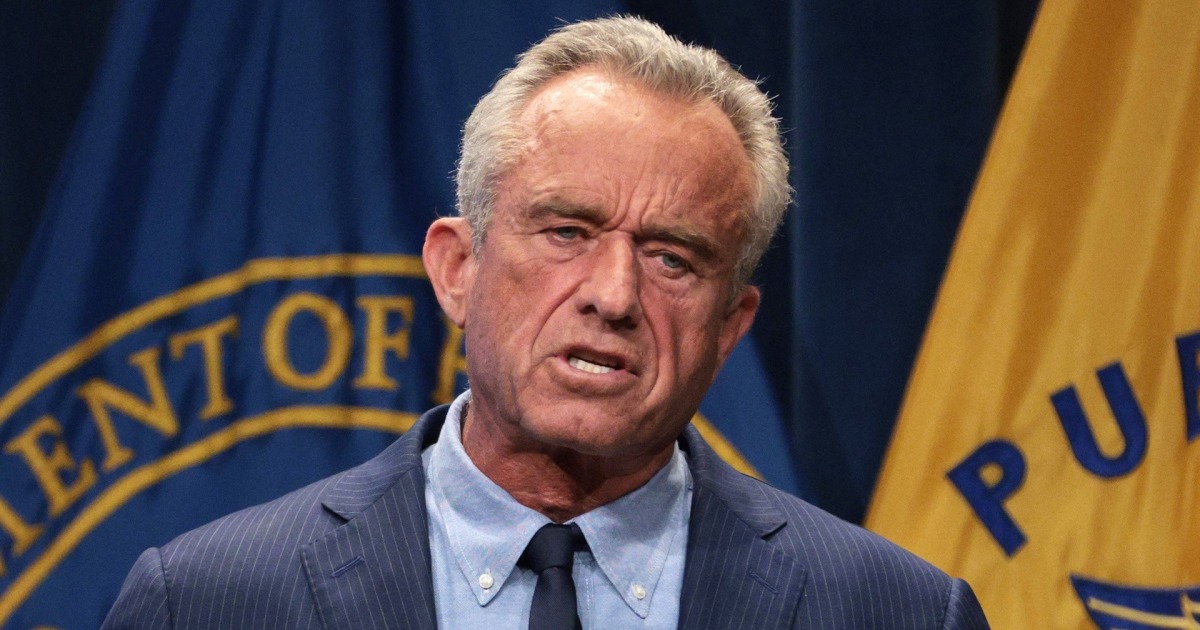RFK Jr.’s Controversial Autism Claims Ignite Firestorm of Criticism
Robert F. Kennedy Jr. has drawn sharp backlash from medical professionals and autism advocates after suggesting that autism could be “preventable” during a recent public appearance. The environmental lawyer and vaccine skeptic made the remarks last week, reigniting debates about autism causation and fueling outrage among experts who argue his claims lack scientific merit. Critics warn such statements risk spreading misinformation and stigmatizing families affected by autism spectrum disorder (ASD).
The Controversial Statements and Immediate Reactions
Speaking at a health freedom conference, Kennedy asserted that environmental factors—including vaccines—could play a role in preventing autism. While he didn’t cite specific studies, his comments echoed long-debunked theories linking vaccines to ASD. Within hours, neurologists, pediatricians, and advocacy groups condemned his remarks as dangerous oversimplifications.
“Autism is a complex neurodevelopmental condition with strong genetic underpinnings,” said Dr. Sarah Chen, a pediatric neurologist at Johns Hopkins University. “Suggesting it’s purely preventable ignores decades of research and places unfair blame on parents.”
Autism Speaks, a leading advocacy organization, released a statement emphasizing that 1 in 36 children in the U.S. are diagnosed with ASD, per CDC data, and that current science focuses on support—not prevention.
Scientific Consensus vs. Misinformation
The medical community overwhelmingly agrees that vaccines do not cause autism, a myth stemming from a fraudulent 1998 study later retracted. Key research highlights include:
- A 2019 Annals of Internal Medicine study of 650,000 children found no vaccine-ASD link
- Genetic factors account for 74–93% of autism risk, per JAMA Psychiatry
- Prenatal environmental influences (e.g., maternal health) are studied, but none suggest “prevention”
Kennedy’s remarks, however, tap into persistent vaccine hesitancy. “When public figures amplify pseudoscience, it erodes trust in lifesaving medicine,” warned Dr. Mark Harris, an epidemiologist.
Advocates Decry Stigmatization of Autism Community
Autism advocates argue that Kennedy’s language frames ASD as a disease to avoid rather than a neurological difference. “This isn’t about health—it’s about accepting neurodiversity,” said Lydia Brown, an autistic rights activist. Many in the ASD community oppose “prevention” narratives, noting they prioritize societal comfort over autistic lived experiences.
Meanwhile, some parent groups aligned with Kennedy defend his right to question mainstream science. “We deserve transparency about environmental risks,” argued one mother in a Facebook group, reflecting polarized views.
Broader Implications for Public Health Discourse
The controversy underscores ongoing challenges in combating medical misinformation. Studies show that correcting false claims can inadvertently reinforce them, a phenomenon known as the “backfire effect.” Experts urge media to contextualize such statements with facts without amplifying them.
Future debates may hinge on:
- Ethical reporting on unproven health theories
- Balancing free speech with scientific accountability
- Improving autism education to reduce stigma
Moving Forward: A Call for Nuanced Dialogue
As the fallout continues, researchers stress the need for compassionate, evidence-based conversations about autism. “We should focus on improving quality of life for autistic individuals, not speculative causation,” said Dr. Chen. For families seeking reliable information, organizations like the Autism Science Foundation offer vetted resources.
Kennedy’s comments may fade, but the tensions they reveal—between skepticism and science, acceptance and alarm—will persist. How society navigates them could shape autism understanding for years to come.
Stay informed with verified health reporting. Subscribe to our newsletter for expert-curated updates on autism research and advocacy.
See more WebMD Network



